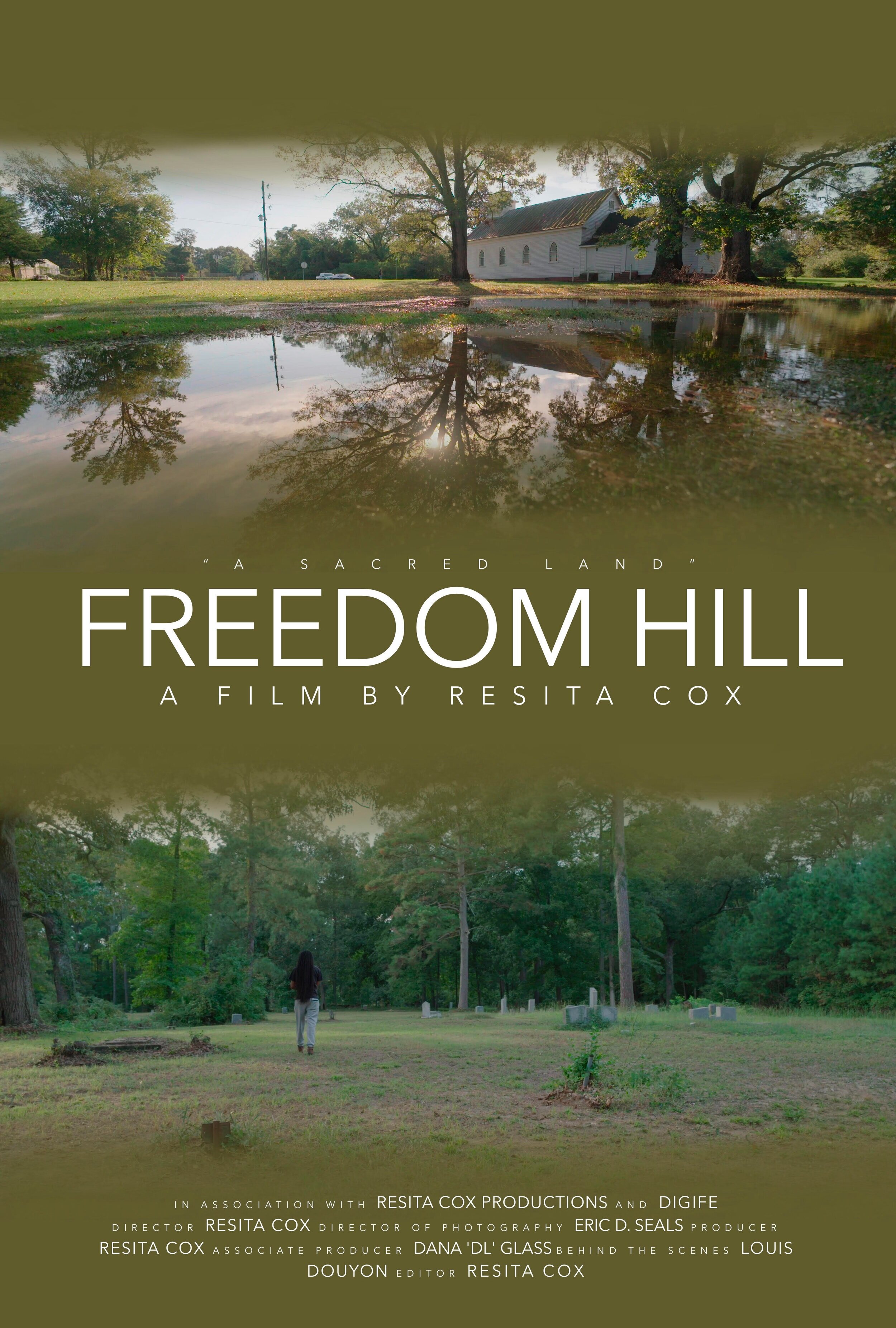Episode 26 - Resita Cox - “What They Do”
July 30, 2021
In this episode, I speak with journalist and filmmaker, Resita Cox. We chat about her local news career and why she decided to become a documentary filmmaker. We also discuss her latest project which is supported by Kartemquin Films, Freedom Hill a powerful film that celebrates Princeville, North Carolina, the first town incorporated by freed, enslaved Africans in America that is now suffering the impact of both environmental racism and climate change. Because Resita is a filmmaker who is not only true to her vision and her protagonists and in doing so, disrupts the status quo, the episode’s song is The Roots, “What They Do.”


Resita’s Bio
Resita is an independent filmmaker based in Chicago, IL. She graduated from The University of North Carolina at Chapel Hill with degrees in Broadcast Journalism and Political Science. Resita launched her career in journalism at WTVD-TV in Raleigh, NC, and WCTI-TV in New Bern, NC as a multimedia journalist and news reporter. Resita transitioned from news media to documentary film in 2018, where she was named a Chicago Filmmakers Digital Media Production Grantee for her film, Regrowth, which is about food and environmental justice on the West Side of Chicago. Resita has also worked with Kartemquin Films, one of the leading documentary film houses in the Midwest, as the Impact Producer on their Emmy-nominated docu-series produced with The Marshall Project, We Are Witnesses. She is currently directing a film about the environmental racism that is erasing the first town established by Black people in the nation, Freedom Hill. She is set to earn her MFA in Documentary Media from Northwestern University this year.
About Freedom Hill
Freedom Hill: Logline
Princeville, NC is the first town incorporated by freed, enslaved Africans in America. This historical significance sits on a precipice: it is gradually being washed away.
Freedom Hill: Synopsis
Princeville sits atop wet, swampy land along the Tar River in North Carolina. In the 1800s this land was disregarded and deemed uninhabitable by white people. After the Civil War, this indifference left it available for newly freed enslaved Africans to settle it. Before its incorporation, residents called it ‘Freedom Hill,’ gradually establishing a self-sufficient, all Black town. Resting along the floodplain of the river, Princeville and its residents are not strangers to adversity. The historical town has been inundated with flooding over the centuries. With each flood, a little more of the small town erodes.
In 1999, two hurricanes hit North Carolina only ten days apart. The first, Hurricane Dennis, brought about 8 inches of rain, but the storm that followed, Hurricane Floyd, kept the town underwater for 11 days. Marquetta Dickens was only 13 years old in 1999, but she still remembers the fear she felt on the eve of the flood, particularly because when her family had to evaluate, her grandmother wasn’t there to leave with them. Dickens’ grandmother, Delia Perkins, was the mayor during Hurricane Floyd and had to stay behind to make sure all residents made it to safety. ‘Freedom Hill’ explores the environmental racism that is washing away the town of 2,000 through the lens of Marquetta, who recently moved back to North Carolina after learning more about her family lineage through a DNA testing service. She traced her lineage in Princeville back to the late 1800s where her great-great-grandmother, Maggie Perkins, was the only woman listed as a property owner in the 1900 U.S. Census. Shortly after her discovery, Marquetta founded The Freedom Organization in her hometown, where she is working to get Princeville registered as an official historical place. The institution of slavery destroyed many Black familys’ abilities to trace their family lineage, making Marquetta’s discovery all the more sacred.
Hurricane Floyd wasn’t the end of the town’s problems. Despite 17,000 homes being lost, the government did little to nothing to implement infrastructure to protect the town against future storms and flooding. Instead, it rested on the belief that the flooding was a ‘once in a century occurrence. Except, 17 years later, in 2016, Hurricane Matthew arrived, flooding the town once again. The residents of Princeville continue to build and rebuild, with each storm that challenges their ability to remain on sacred land. In ‘Freedom Hill,’ Princeville is one of the main characters, brought to life through several vignettes of the town: see the town organize a car caravan for Irene Jones’ 106th birthday celebration; hear residents discuss how they lost everything in ‘99 and ‘16 in one of the oldest barbershops in the state; walk through Helen Whitfield washed out, abandoned house as she reminisces on family gatherings, holidays and birthday parties in a home that is no more.
Websites & Social Media
Journalism Organizations
People